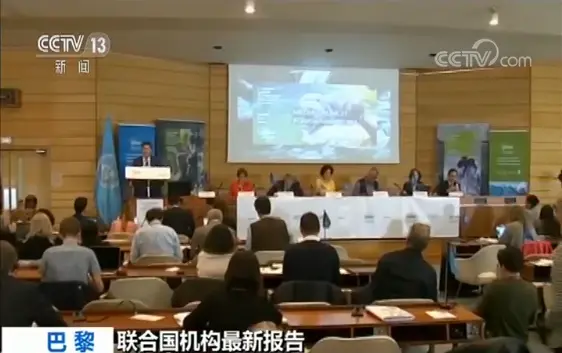Lawmakers in Beijing reviewed a draft law on smoking control, this time including a ban on smoking in single occupancy offices, for the second time on Thursday.
In the previous draft, smoking was prohibited in public areas, public transport and shared working places. The draft now includes single occupancy offices after controversy over company bosses often being exempt from smoking controls because they have their own office.
Angela Pratta, who is leading the Tobacco Free Initiative of the World Health Organization (WHO) in China, said, "if single occupancy offices are allowed to be exempt from smoke-free laws, then co-workers, cleaning staff and others who have to enter these offices, or who work nearby, would be exposed to second-hand smoke."
"As a result, we removed the word 'shared'," said Wang Qingbin, an associate law professor at the China University of Political Science and Law.
"This move showed how public opinion pushed forward anti-smoking legislation," he said.
Making it more feasible
China is home to over 300 million smokers, with more than one million people dying as a result of tobacco-related illness each year, according to the WHO.
The country signed the WHO Framework Convention on Tobacco Control (FCTC) in 2003 and it became effective in 2006. According to the FCTC, China should have banned smoking in indoor public areas completely by 2011. However, it is not unusual to see smokers puff away in restaurants, bars and hair salons.
Beijing banned smoking in public places such as schools, hospitals, banks and public transport in March 2008, before the Olympics. It also stipulated that in places such as restaurants and parks, there should be specific smoking areas.
However, this rule was poorly implemented. As a result, people expected the new law to be more feasible.
The new regulation underlined that "relevant work units be responsible for tobacco control".
"This is a step forward," said Wang Delin, vice chairman of the Legislative Affairs Committee of the Beijing Municipal People's Congress. "This means that in case of poor implementation, someone will be punished."
After the first review of the rule in July, amendments were made also to make it appear more practical.
For instance, in the first draft, hotels and airports were listed as places where smoking was strictly prohibited. But in the second draft, the areas were changed to "hotels without ventilation system, and airports, apart from the smoking rooms".
If the law is too strict to enforce, what's the point of having it, some experts argued.
Criticism and hope
But some experts, including Wang Qingbin, expressed disappointment over the new rule.
"I doubt whether the ventilation systems for 'smoking rooms' could be effective," he said. "Another problem is, what if there is no non-smoking room left in a hotel? Will the customer be forced to use a smoking room, and endure the second-hand smoke left there?"
"The WHO is extremely dismayed to see these loopholes appear in the draft Beijing law," said Pratta. "Exemptions to 100 percent smoke-free laws create enforcement difficulties." Smoke will drift out of those rooms where smoking would be allowed, making it difficult to tell if someone had broken the law, she noted.
"These loopholes would make Beijing's law incompatible with China's obligations under the FCTC," Pratta continued. "Loopholes and exemptions make smoke-free laws harder to enforce, not easier."
Other experts saw hope from the draft and the reviews. "This is a very good beginning," said Wu Yiqun, deputy director with ThinkTank Research Center for Health Development, a Beijing-based non-government organization.
"Only after we have a strong law will people pay attention to the problem," she said.
A vote for the law will be carried out next January. It is not known whether the draft will be reviewed again.
 简体中文
简体中文

